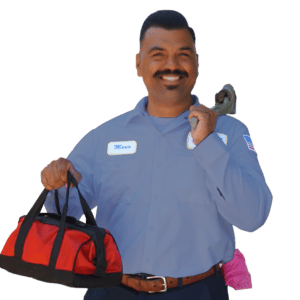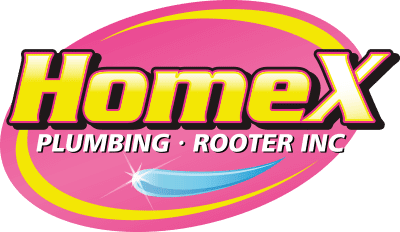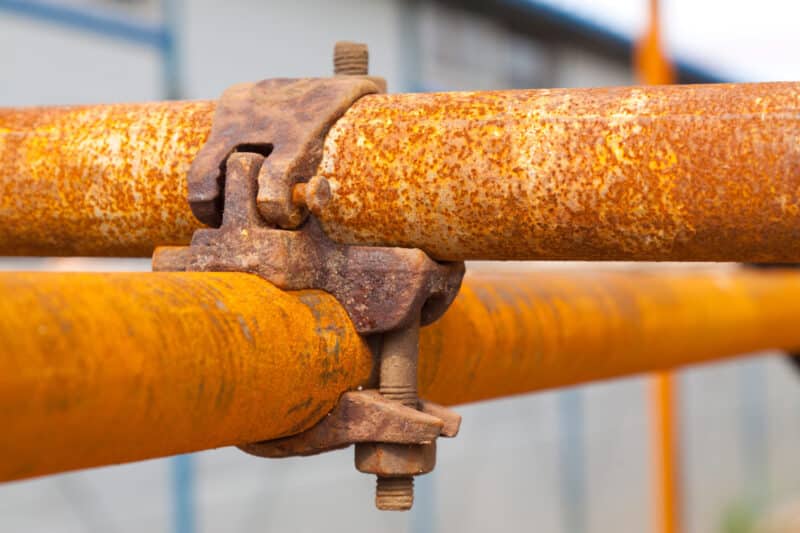Drain issues sneak up on homeowners, because the drainage system often remains out of sight and out of mind — that is, until something goes wrong.
Drains are pivotal in maintaining the hygiene and functionality of our homes, but more often than not they are overlooked until problems arise.
Basic drain repair is a much more affordable service than an unnecessary major plumbing emergency job. Fortunately, your drains can tell you a lot about the state of your plumbing system. Many issues can start in or near a drain.
Plumbing emergencies can be avoided if you recognize these 7 signs of trouble and contact a professional plumbing service.
Slow Drainage
If water is draining more slowly, chances are the drain or pipe is clogged. Soap, grease, and hair can build up over time, so the problem may develop gradually. Since the growing blockage isn’t going anywhere, the symptoms won’t get better unless a professional drain cleaning is done. A plumber should check for pipe damage as well.
Slow Draining Sink
When it comes to slow draining sinks, both the bathroom sink and kitchen sink can be prime suspects. Using a drain strainer is a great way to prevent slow draining sink problems before they start.
When a bathroom sink the bathroom sink is draining slowly the common culprits are often strands of hair, small soap pieces, and toothpaste residue. These elements can bind together and create a blockage over time.
When the kitchen sink is draining slowly the issue is primarily from grease, food particles, and soap scum. Grease is particularly problematic as it solidifies inside the pipes and traps other debris.
If you notice water pooling around your sink rather than flowing freely, it’s a telltale sign that your sink drain is starting to clog. If the issue comes up even after you clean out the drain, it’s time to call in professional assistance to clear out the buildup effectively and make sure your pipes aren’t damaged.
Slow Shower and Bathtub Drain
The issue of slow draining in showers and bathtubs is a common annoyance that can escalate from a minor inconvenience to a significant plumbing problem.
Hair is the primary offender in these cases, often combining with soap scum to form a sticky, tangled mass that clings to the pipes. Over time, this accumulation not only slows the water drainage but can also lead to complete blockage.
Bath oils and other personal care products in showers and bathtubs can contribute to the buildup over time as well.
Pay attention to how quickly the water drains after a bath or shower. If you notice it lingering longer than usual, it’s a sign that a clog is forming.
Regular cleaning of the drain cover to remove hair and debris can help, but if the problem persists, it might be time to call in a professional. We can remove the blockage and also inspect for any underlying issues that might be exacerbating the problem.
Water and Waste Backup
A sink, toilet, shower, or tub backup may not only signal a drain problem, but that your sewer needs repair as well. It may be caused by corrosion, a pipe collapse, ground shifting, intruding tree roots, or many other issues. In these instances you need sewer services.
Don’t wait to address the problem because if sewage is coming out of your drains. That’s a recipe for sickness: bacteria, viruses, and toxins can enter your home.
Sink Water Backing Up
Water backing up in your sink is often more than just a simple clog; it can indicate serious issues with your home’s water system. If the backup is severe and accompanied by foul odors, it might suggest deeper issues such as pipe damage.
Act immediately when you notice water backing up in your sink. Ignoring it can lead to more significant problems, including potential health hazards from sewage exposure. A professional plumber can diagnose the issue, whether it’s a localized blockage or a more extensive sewer line problem.
Bathtub Backing Up
Bathtub backups often indicate a bigger problem than a simple drain clog. The cause of bathtub backups can range from accumulated hair and soap scum in the pipes to more serious sewer line issues.
If you notice that water is not draining properly or, worse, sewage is coming up through your bathtub drain, it’s a significant indication that there could be a blockage or damage in the main sewer line.
The issue is especially severe if other fixtures in your home are also experiencing backups, as this points to a systemic problem rather than an isolated one. Tree roots, shifting ground, or aged pipes are common culprits for such issues.
Sewage Backup
Sewage backup is one of the most alarming signs that your home’s plumbing system is in distress. Sewage backups aren’t just inconvenient and gross – they are a serious health hazard.
When sewage water reverses its course and enters your home it brings along bacteria, viruses, and toxins that can pose significant health risks.
This issue may manifest across multiple fixtures in the home, such as toilets, sinks, and bathtubs. The severity of sewage backups needs immediate professional intervention. Ignoring sewage backup is not advisable, as it can lead to extensive property damage and serious health issues for the occupants.
Foul Smells from Drains
When an unpleasant smell is coming out of your drains and plumbing fixtures, the culprits often include waste trapped in the drains or sewer gases. Sewage smells for many reasons. If it’s stuck in your drains rather than flowing through underground pipes, away from your home, get your drain repaired.
Kitchen Sink Odors
Foul odors emanating from the kitchen sink can be a distressing sign of underlying plumbing issues. Often, these smells are caused by the buildup of food particles, grease, and other organic matter that gets trapped in the drain.
Bacteria feeding on these substances can produce unpleasant odors, indicating the need for a thorough cleaning.
Regularly flushing the sink with hot water and mild detergent can help, but persistent smells might point to more significant issues like pipe damage or sewer gas leaks. If kitchen sink odors persist despite your cleaning efforts, it might be time to consult a professional plumber to identify and resolve the root cause.
Sewer Smell in House
A pervasive sewer smell in the house is a clear indicator of a serious plumbing problem. This unpleasant odor can be caused by various issues, such as a dry trap allowing sewer gas to enter the home, a blockage in the sewer line, or even cracks in the sewer pipes.
It’s crucial to address this issue promptly as sewer gas can contain harmful toxins and bacteria.
If you detect a sewer smell in your house, it’s advisable to seek professional help immediately to diagnose and fix the issue, ensuring the safety and comfort of your family.
Frequently Clogged Drains
Having to unclog a shower drain or plunge the toilet over and over again means there is a hidden problem. Drains naturally clog from time to time. The problem shouldn’t repeat itself often. Another warning sign is if more than one drain/fixture keeps clogging up; there is likely a serious problem deeper in your plumbing lines.
Frequently Clogged Toilets
Toilets that clog frequently are more than just a nuisance; they can be symptomatic of deeper plumbing issues. Common causes include flushing inappropriate materials like wipes or excessive toilet paper, or more serious concerns like sewer line problems.
If your toilet is experiencing frequent clogs, it’s important to avoid using chemical drain cleaners as they can damage pipes. Instead, a plunger or a plumber’s snake can often resolve simple clogs.
However, if the issue persists, it may be time to call a professional plumber to inspect your sewer line and identify any underlying problems.
Kitchen Sink Keeps Clogging
If your kitchen sink continues to clog despite preventive measures, it may indicate a deeper blockage in the plumbing system, requiring professional intervention.
This problem often stems from the disposal of grease, food scraps, and other substances that should not go down the drain. To prevent this issue in the future, avoid pouring grease down the drain and use a sink strainer to catch food particles.
Shower Drain Keeps Clogging
Shower drains are particularly prone to clogging due to the accumulation of hair, soap scum, and other personal care products. This can lead to slow drainage and water pooling in the shower. Regularly cleaning the drain cover and using a hair catcher can help prevent clogs and usually solves the issue.
However, if your shower drain keeps clogging, it could be a sign of a more significant blockage deeper in the drain line. In such cases, professional plumbing services may be needed to clear the obstruction and ensure proper drainage.
Gurgling Drains and Unusual Sounds
Listening to your drains can help you know whether drain repair is needed. Your sink or shower drain, or toilet, should not be gurgling. This is an indication that air is trapped in the drain, and the cause of the issue should be determined by a professional plumbing technician. The source may be a faulty plumbing vent or sink trap.
Gurgling Sound from Sink
A gurgling sound from the sink can be an alarming sign that air is trapped in your plumbing system, often due to a blockage. This noise occurs when water displaces the air trapped in the pipes, indicating that the drain is not functioning properly.
Regular cleaning can help, but if gurgling sounds persist, it’s a signal to seek professional plumbing assistance to clear the blockage and restore proper airflow in the pipes.
Toilet Gurgling
If your toilet makes a gurgling sound, it’s often a warning sign of a venting issue or a blockage in the sewer line. This noise occurs when the toilet is struggling to draw air, which can be due to a clog or improper venting.
Persistent gurgling noises from the toilet should not be ignored as they can indicate serious plumbing issues. A professional plumber can assess and resolve the problem, ensuring the proper functioning of your toilet and preventing potential sewage backups.
Low Water Pressure Problems
Unless someone inadvertently left the main water valve partially closed, low water pressure can be due to drain or pipe degradation, a clog, a faulty pressure regulator, or a leak.
If the pressure regulator is failing, water pressure can go down abruptly. It can also rise to dangerously high levels, increasing the risk of more serious plumbing damage.
If you’re concerned about low water pressure, consider getting a water leak detection from a professional.
Low Water Pressure in the Shower
Experiencing low water pressure in the shower can be frustrating and may be caused by various factors, such as clogged showerheads, faulty plumbing, or issues with the main water supply. Mineral buildup in the showerhead is a common culprit and can often be resolved by cleaning or replacing the showerhead.
However, if low water pressure is a consistent problem not limited to the shower, it could indicate more significant issues within your plumbing system, such as leaks or blockages, which require professional assessment.
Sink Water Pressure is Low
Low water pressure in sinks can significantly impact your daily activities, from washing dishes to basic hygiene. This issue can be due to clogged aerators, which are easy to clean or replace.
If the water pressure in the sink continues to remain low, or if the problem affects multiple fixtures, it could be a sign of larger plumbing concerns like corroded pipes or main supply issues. In such cases, a professional plumber can diagnose the problem and suggest the best course of action to restore optimal water pressure in your home.
Pests in Plumbing
Bugs and rodents can be a problem especially if sewage is backing up into your drains. Various species of insects feed off the nutrients in sewage. In turn, rodents feed off them, so your home becomes part of the food chain. If left unfixed, a drain problem can lead to major infestations that can affect your entire home.
Drain Flies in Bathroom
Finding drain flies in your bathroom can be a sign of a deeper issue within your plumbing system. These small, moth-like flies are attracted to stagnant water and organic material in drains, often indicating a clog or buildup.
Regular cleaning of drains can help prevent their occurrence, but persistent infestations might require more thorough methods, such as professional drain cleaning, to eliminate the breeding ground for these pests.
Cockroaches in Drains
The presence of cockroaches in drains is not only unsettling but also a sign of potential plumbing issues. These pests are drawn to moist environments and can enter your home through cracks or breaks in the plumbing.
Ensuring your drains are clean and free of food particles can help deter cockroaches, but their presence often requires professional pest control and plumbing inspection to identify and seal entry points.
Sewer Flies in House
Sewer flies in the house are an indication of a plumbing problem, specifically in the sewer lines or septic system. These flies breed in the organic material found in sewage and can enter homes through cracks or gaps in plumbing fixtures.
Addressing this issue typically involves both pest control measures and plumbing repairs to fix any damage in the sewer lines and eliminate breeding grounds for these flies.
Schedule Drain Repair with HomeX
Serving Anaheim and Southern California, HomeX is trusted for drain services and plumbing repair and installation. Our company is a BBB Accredited Business and uses state-of-the-art drain cleaning methods. We’re known for our elite customer service and our trained and experienced plumbers can fix your drain problems quickly. If you have slow drains, frequent clogs, gurgling sounds, foul odors, or other signs of drain trouble, give us a call at 714-874-3754 or request service by filling out our online form.





